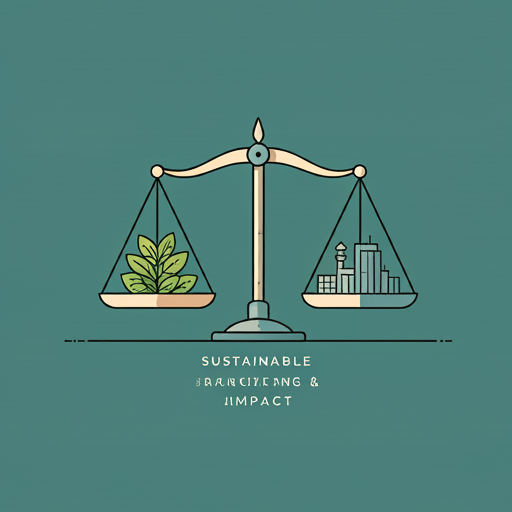Sustainable Investing: Balancing Profits and Environmental Impact
Definition and Importance
Sustainable investing refers to the integrating of environmental, social, and governance (ESG) factors into investment decisions. This approach seeks to generate long-term financial returns while promoting positive societal impact. Investors increasingly recognize that sustainability can enhance portfolio resilience. It’s crucial for future growth. The market is evolving rapidly.
Historical Context and Evolution
Sustainable investing has evolved significantly since its inception in the 1960s. Initially, it focused on socially responsible investing, excluding certain industries. Over time, the approach expanded to include comprehensive ESG criteria. This shift reflects growing awareness of global challenges. Investors are now more informed. The landscape continues to change.
The Role of Cryptocurrency in Sustainable Investing
Overview of Cryptocurrency’s Environmental Impact
Cryptocurrency mining significantly impacts the environment due to its high energy consumption. For instance, Bitcoin mining alone consumes more electricity than some countries. This raises concerns about carbon footprints and sustainability. Many investors are now questioning the viability of such oractices. Awareness is growing. Alternatives like proof-of-stake are emerging.
Potential for Positive Change in the Industry
The cryptocurrency industry holds significant potential for positive change through innovative practices. By adopting renewable energy sources, miners can reduce their environmental impact. This shift not only enhances sustainability but also attracts socially conscious investors. Many are eager for change. Furthermore, blockchain technology can facilitate transparency in supply chains. This fosters accountability and ethical
Key Principles of Sustainable Investing
Environmental, Social, and Governance (ESG) Criteria
Environmental, Social, and Governance (ESG) criteria are essential for evaluating sustainable investments. These criteria assess a company’s impact on the environment, its social responsibility, and governance practices. Investors prioritize firms with strong ESG performance. This approach mitigates risks and enhances long-term value. Many investors seek transparency. Effective ESG strategies can lead to better financial outcomes.
Long-term Value Creation
Long-term value creation focuses on sustainable growth strategies. This approach emphasizes resilience against market fluctuations. Investors benefit from stable returns over time. It encourages companies to prioritize ethical practices. Many firms are adopting this mindset. By integrating ESG factors, businesses can enhance their reputations. This leads to increased investor confidence.
Challenges in Sustainable Cryptocurrency Investments
High Energy Consumption of Mining
High energy consumption in cryptocurrency mining poses significant challenges. This process often relies on fossil fuels, increasing carbon emissions. Many investors are concerned about sustainability. The environmental impact is substantial. Transitioning to renewable energy sources is essential. This shift can mitigate negative effects. Investors are increasingly prioritizing eco-friendly practices.
Regulatory and Market Volatility
Regulatory and market volatility significantly impact sustainable cryptocurrency investments. Frequent changes in regulations create uncertainty for investors. This unpredictability can deter long-term commitments. Many investors seek stability. Additionally, market fluctuations can affect asset valuations. This complicates investment strategies. Investors must remain vigilant and adaptable. Understanding regulations is crucial for success.
Innovative Solutions for Sustainability
Green Cryptocurrencies and Eco-friendly Projects
Green cryptocurrencies focus on reducing environmental impact through innovative technologies. These projects often utilize renewable energy sources for mining operations. This approach minimizes carbon footprints significantly. Many investors are drawn to these initiatives. Eco-friendly projects promote sustainability and social responsibility. They align with growing consumer demand for ethical practices. Awareness is increasing in the market.
Technological Advancements in Blockchain
Technological advancements in blockchain offer innovative solutions for sustainability. Enhanced consensus mechanisms, like proof-of-stake, reduce energy consumption significantly. This shift promotes eco-friendly practices within the industry. Many projects are adopting these technologies. Additionally, blockchain can improve supply chain transparency. This fosters accountability and ethical sourcing. Investors increasingly value these developments.
Case Studies of Sustainable Cryptocurrency Projects
Successful Examples and Their Impact
Successful examples of sustainable cryptocurrency projects demonstrate significant impact. For instance, projects like Chia utilize a proof-of-space mechanism, reducing energy consumption. This innovative approach attracts environmentally conscious investors. Additionally, SolarCoin rewards solar energy production with cryptocurrency. Such initiatives promote renewable energy adoption. Many stakeholders recognize their potential benefits. These projects set a precedent for future developments.
Lessons Learned from Failures
Lessons learned from failures in sustainable cryptocurrency projects highlight critical insights. For example, some initiatives underestimated regulatory challenges, leading to significant setbacks. This oversight can jeopardize investor confidence. Additionally, projects that lacked transparency often faced backlash. Clear communication is essential for success. Many stakeholders value accountability and trust. These experiences inform future strategies.
Strategies for Investors
Identifying Sustainable Investment Opportunities
Identifying sustainable investment opportunities requires thorough research and analysis. Investors should evaluate companies based on their ESG performance metrics. This includes assessing environmental impact, social responsibility, and governance practices. Many investors prioritize transparency and accountability. Additionally, analyzing market trends can reveal emerging sectors. Renewable energy and green technology are promising areas. Staying informed is crucial for success.
Risk Management in Sustainable Investments
Risk management in sustainable investments involves identifying potential threats and mitigating them effectively. Investors should diversify their portfolios to reduce exposure to specific risks. This strategy enhances overall stability. Additionally, conducting thorough due diligence is essential. Understanding market dynamics can inform better decisions. Many investors prioritize risk assessment. Staying proactive is key to success.
The Future of Sustainable Investing in Cryptocurrency
Trends to Watch
Trends in sustainable investing within cryptocurrency are evolving rapidly. Increased regulatory scrutiny is shaping market dynamics. Investors are becoming more discerning about ESG factors. This shift influences investment strategies significantly. Additionally, the rise of decentralized finance (DeFi) is noteworthy. Many projects are prioritizing sustainability. Awareness of environmental impact is growing.
Call to Action for Investors and Stakeholders
Investors and stakeholders must prioritize sustainable practices in cryptocurrency. By actively supporting eco-friendly projects, they can drive meaningful change. This commitment enhances long-term value and mitigates risks. Many investors seek responsible investment opportunities. Engaging with innovative technologies is essential. Collaboration among stakeholders fosters a sustainable ecosystem. Awareness of environmental impact is crucial.
